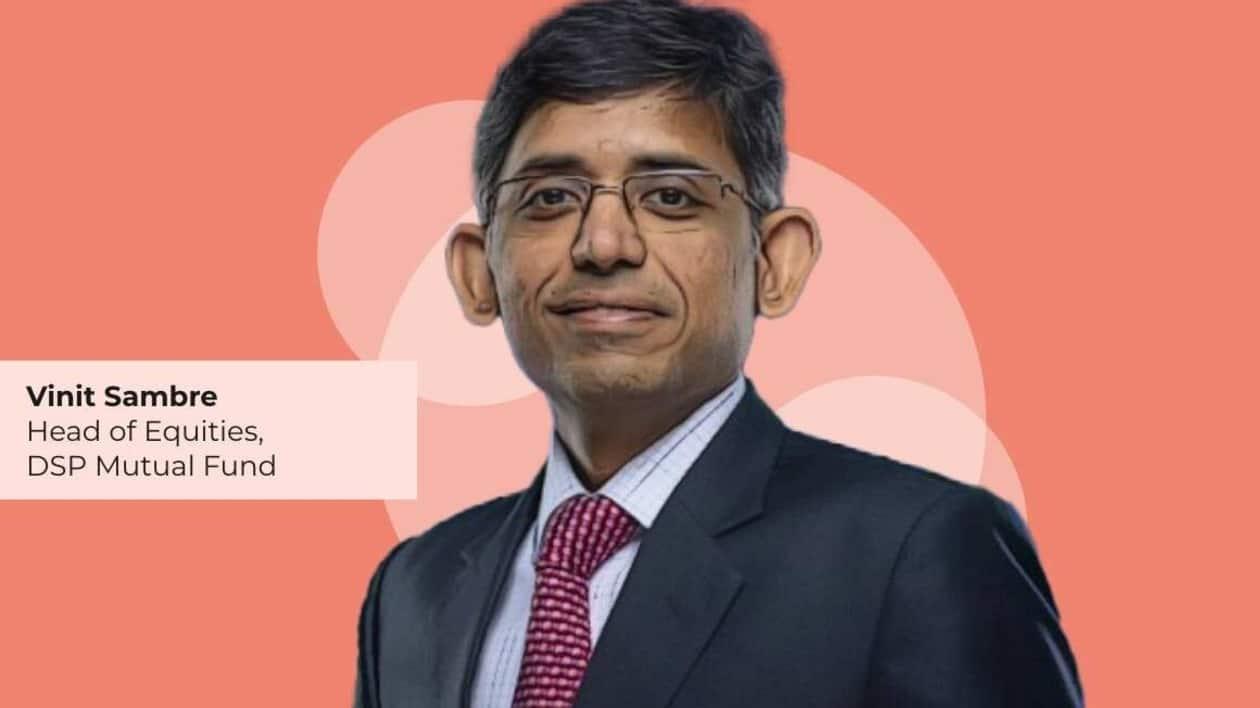Information technology (IT) stocks are trading at moderate valuations in the wake of global recession fears, thus making them an attractive buy, believes Vinit Sambre, head of equities, DSP Mutual Fund. Besides technology, he holds a long-term positive view on healthcare, banking and auto sectors.
In an interview with MintGenie, Sambre says he believes India is likely to see macro-economic cyclical recovery over the next 4-5 years on the back of investments taking place today in key areas of railway, defence, roads, etc.
He also shares a key investing wisdom that financial discipline does not mean you should never sell, instead it means to realign asset allocation in timely manner and sell when financial goals are met.
Edited Excerpts:
Which sectors are expected to do well in the next calendar year? Do you expect the IT sector in India to perform badly in the backdrop of economic struggles which the US, like other developed economies, is currently facing?
We are positive on banking sector due to pick up in credit growth, stable NIMs, low credit cost, improving ROAs and reasonable valuations. We are also positive on auto sector as it comes out from three years of slowdown. The healthcare sector faces headwinds due to higher raw material cost and pricing pressure in US markets, but we feel these are transitionary in nature and like the sector due to strong cash flow generation and reasonable valuations.
On IT sector, we hold long term positive view due to superior capability of Indian IT companies, growing opportunity into digitisation, deeper engagements with clients and high cash flow generation. The sector valuations have moderated due to global recession fears which makes it interesting from long term view.
Amid the Ukraine war and rising oil prices, markets are facing global headwinds. Which direction do you think the financial markets will go in the next 3-4 quarters?
The global macros and geopolitical developments are causing risk aversion towards equities. However, India has managed the macros well during pandemic in comparison to developed nations which is also seen in the outperformance of Indian equities, of late. Our corporate balance sheets are strong with ROEs for corporate India around 15% as on FY22.
The leverage (debt: equity) of top NSE-500 companies excluding financials have fallen to 37 percent in FY22. The banking sector has seen clean up in their asset quality with system GNPA ratio falling from 11.5% in FY18 to 5.9% in FY22. India is likely to see macro-economic cyclical recovery over the next 4-5 years on the back of investments which are taking place today in key areas of railway, defence, roads, along with upcoming large opportunities like hydrogen, electric charging infrastructure, data centres, renewable etc.
Further government’s thrust on domestic manufacturing would see India’s GDP contribution from manufacturing going up which should also aid in job creation. We see these factors supporting long term case for remaining invested in equities for wealth creation. Next 3-4 quarters could remain volatile due to potential risk emanating from commodity inflation which is hurting consumer wallet, rising interest rates, slowing rural growth and rich valuation.
The small and mid-cap funds tend to witness a greater volatility vis-à-vis their larger counterparts. What advice would you give to retail investors who invest in the small and mid-cap funds/ stocks in order to earn higher returns?
The small and midcap funds are good to consider from long term wealth creation perspective as it is good way to participate in growth of mid-sized yet leading companies across different sectors run by capable management. Many of these companies are run in capital efficient manner earning superior long-term ROEs.
The segment is susceptible to risk due to greater volatility, which can be taken care of by remaining invested for long term, let’s say over 7-8 years as real power of compounding is visible over long term. Further, there are many segments like agriculture, home improvements, speciality chemicals, retail where there is less or no opportunity to participate through large caps. Hence, we continue to maintain our positive view on mid and small caps with long term view.
It is often seen that active mutual funds, more often than not, fail to beat the returns of their benchmark index. Given this, would you recommend the investors — particularly conservative ones — to stick to passive funds rather than active funds?
Active share in large cap funds is often significantly lower than mid/small cap funds for various reasons. Higher active share implies that over short term, there could be volatility in performance with respect to benchmarks. This is a pain point for most investors. But this is also the cost of longer-term alpha generation.
We think of this as an opportunity to deliver alpha over time by communicating our approach transparently and getting aligned capital. Disciplined, focussed and consistent approaches that are true to a sound style will continue to generate alpha.
It is often emphasised that investors need to be patient when they invest in equity, and they should not get either exuberant or nervous during different market cycles. But what can investors do when their financial goals are around the corner, and the markets are undergoing a bear phase? How can one expect to redeem the investments and exit when the markets are significantly lower?
Just like any other asset classes like real estate, gold etc. equities has to be looked as generational asset class. In case of equities, because the prices gets quoted everyday, many times it induces investors to break their investment discipline creating sub-optimal long term outcomes.
Following financial discipline does not mean that investor should never sell, on the contrary it helps in guiding investors to realign their asset allocation in timely manner, sell when financial goals are met, plans for systematic withdrawal when required, etc. Hence it is important to make a robust financial plan and then follow it in disciplined manner to avoid big errors.
